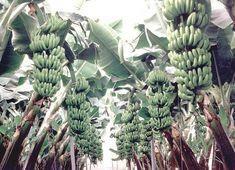
Developments this week in the banana arena have sent splits running through both the Latin American and EU banana camps.
Ecuador “disappointed” the EU with its filing on November 16 of a protest about the European import regime at the World Trade Organisation. EU spokesman Michael Mann said the move was regrettable as Ecuador had agreed last year to try and solve problems with the EU surrounding the regime through negotiation.
Now that an official complaint has been registered, consultations and negotiations have been suspended.
“Our understanding is that this process was advancing fairly well,” said Mann. “It is a terrible shame that this challenge has been launched…it helps no-one.”
Ecuador is at odds with other Latin America countries - most notably Costa Rica - which have not supported it in this complaint preferring the route of negotiation. And although the South American country has registered a slump in EU market share since the new regime came into force of some eight per cent compared with the same period in 2005, this decline is not as great as the decline in share for Colombia, Panama, Venezuela, Honduras or Mexico.
Costa Rica, in contrast, is expected to close 2006 with export values for bananas 15 per cent up on 2005 and to show improved productivity, according to the national banana trade body Corbana.
But the decision to lodge a formal complaint has divided exporters from producers in Ecuador. Producers’ organisations have held high level meetings this week with the vice-president of the republic Alfredo Serrano and the deputy minister for agriculture Armando Serrano to express their criticism of the government move.
Producers represented by the chamber of banana growers say they are not questioning the regime itself but the value of the tariff, which at €176 they say is too high.
“The idea is to negotiate a reduction in the tariff to €120 over a period of five years,” said a growers’ leader. “But the claim that Ecuador is putting before the WTO disputes panel is that the tariff is illegal. This could lead to a moratorium of two years and a return to the old system which benefited licence holders.”
There is still hope that negotiations may re-open as part of the complaints process requires that the plaintiff formally ask for talks with the other party before proceeding further. As FPJ went to press, Ecuador’s diplomats in Geneva were involved in this process.
Meanwhile, the UK used its power of veto to block reform of the EU common market organisation for bananas proposed by the European Commission to the council of agricultural ministers of member states on Tuesday.
Backing the UK were other northerly EU member states Sweden, Lithuania, the Netherlands, Denmark and Estonia. The proposed reform would have seen the Canary Islands banana industry benefit from €141 million of an aid budget of €280m with the remainder going to producers in Madeira and the French Caribbean.
And on Wednesday, the European Parliament agriculture committee voted to continue linking compensatory aid for banana growers to production, but the committee did recommend a review of policy in 2009, should the third-country import tariffs change.



